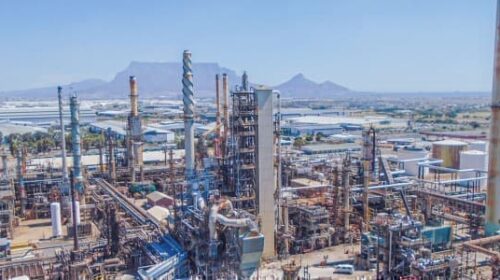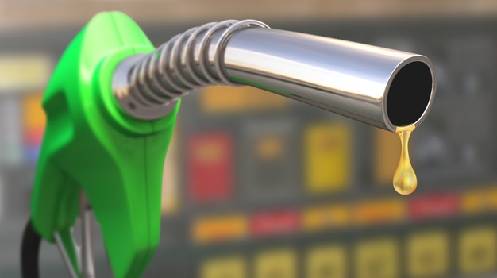South Africa is in the midst of an energy crisis, despite its significant oil, gas, and renewable energy potential. This is mainly due to a prolonged economic crisis and poor management of the state-owned utility. Instability in the country’s energy industry has meant that new developments have been shrouded in uncertainty, with the hope that they will eventually boost South Africa’s energy security. An array of economic reforms has been released by the South African government in a bid to improve the country’s declining economy, and some seem to be working. President Cyril Ramaphosa’s Economic Reconstruction and Recovery Plan was originally proposed in 2018 but has seen several delays due to political opposition. The reforms are aimed at boosting energy security, infrastructure development, food security, job creation, and the green transition. The government says it is aiming for a “sustainable, resilient and inclusive economy.”
According to an S&P Global Ratings analysis, South Africa’s economic outlook is positive thanks to the successful implementation of recent government reforms. It suggested that government measures to increase private sector activity and reform some key government-related organizations could help boost growth outcomes over the next two to three years.
However, some challenges to stability remain. There continue to be deep divisions in the ruling African National Congress (ANC) and Ramaphosa’s cabinet. In addition, the state-owned utility, Eskom, continues to face difficulties. An Africa analyst at the risk consultancy Verisk Maplecroft, Aleix Montana, explained a “perfect storm of inflation, electricity cuts and corruption accusations that will continue to deteriorate South Africa’s profile and to pose risk for investments in the country.”
Related: WTI Falls Despite Crude Draw As Product Inventories Soar
There have been regular power cuts in recent months as Eskom has seen electricity generation shortfalls, mainly due to equipment failures and fuel shortages. The blackouts are set to continue for the next six to 12 months unless the funds are found to provide Eskom with the diesel needed to run its power plants. South Africa has long faced energy problems, with Ramaphosa blaming the situation on Eskom, which, he says, was already underperforming under previous administrations.
Despite major challenges to South Africa’s energy provision, it is attracting high levels of foreign investment in its oil and gas industry. French oil major TotalEnergies submitted an applicated for approval to drill five wells for oil and gas in the region between Cape Town and Cape Agulhas in November. This follows several other application submissions for exploration along the South African coast.
Since the Russian invasion of Ukraine earlier this year, energy companies worldwide have been racing to develop other oil and gas resources, to reduce the global reliance on Russian energy. In addition, oil and gas firms have identified Africa as a strategic region for the development of low-carbon assets, moving away from existing projects in other parts of the world as they dry up. Several international firms have favored largely untapped locations across Africa, seeing the potential to keep developing their oil and gas assets while also reducing emissions, in a bid to appease state governments and international organizations pushing for a green transition.
Despite opposition from environmental groups, TotalEnergies is pushing forward with its plan to develop its South African oil assets. The company plans to explore the deep-water Orange basin, offshore between Port Nolloth and Hondeklip Bay, at a depth of 3,000 metres.
However, South Africa has been responding to calls to curb oil and gas exploration in recent months, as it looks to break into the world of renewables. A South African court banned offshore oil and gas exploration by Shell earlier this year, following a proposal from the oil major to explore the Eastern Cape province.
Despite uncertainty around South Africa’s future in fossil fuels, there are high hopes for its renewable energy potential. In October, the government approved an $8.5 billion energy transition investment plan to accelerate South Africa’s shift away from fossil fuels to renewable alternatives. The Cabinet stated that the plan “outlines the investments required to achieve the decarbonisation commitments made by the government of South Africa while promoting sustainable development, and ensuring a just transition for affected workers and communities”.
The UK, EU, US, France, and Germany are backing the plan and investing in South Africa’s energy transition. At present, South Africa depends on coal for 80 percent of its power. The plan focuses on the electricity sector, electric vehicle manufacturing, and the development of a green hydrogen industry. It also sees a transition away from coal to renewable alternatives. But experts say that it is vital that donor countries deliver on their financing pledges for South Africa to progress in its transition.
As South Africa slowly sees the light at the end of the tunnel from its economic crisis, the focus has shifted to attaining energy security. With strong potential in both fossil fuels and renewable energy, the Government of South Africa will have to exploit these opportunities to ensure the future of the country’s energy. However, inefficiencies in the state utility have meant failures in power provision, with immediate funding required to alleviate the current energy crisis.






